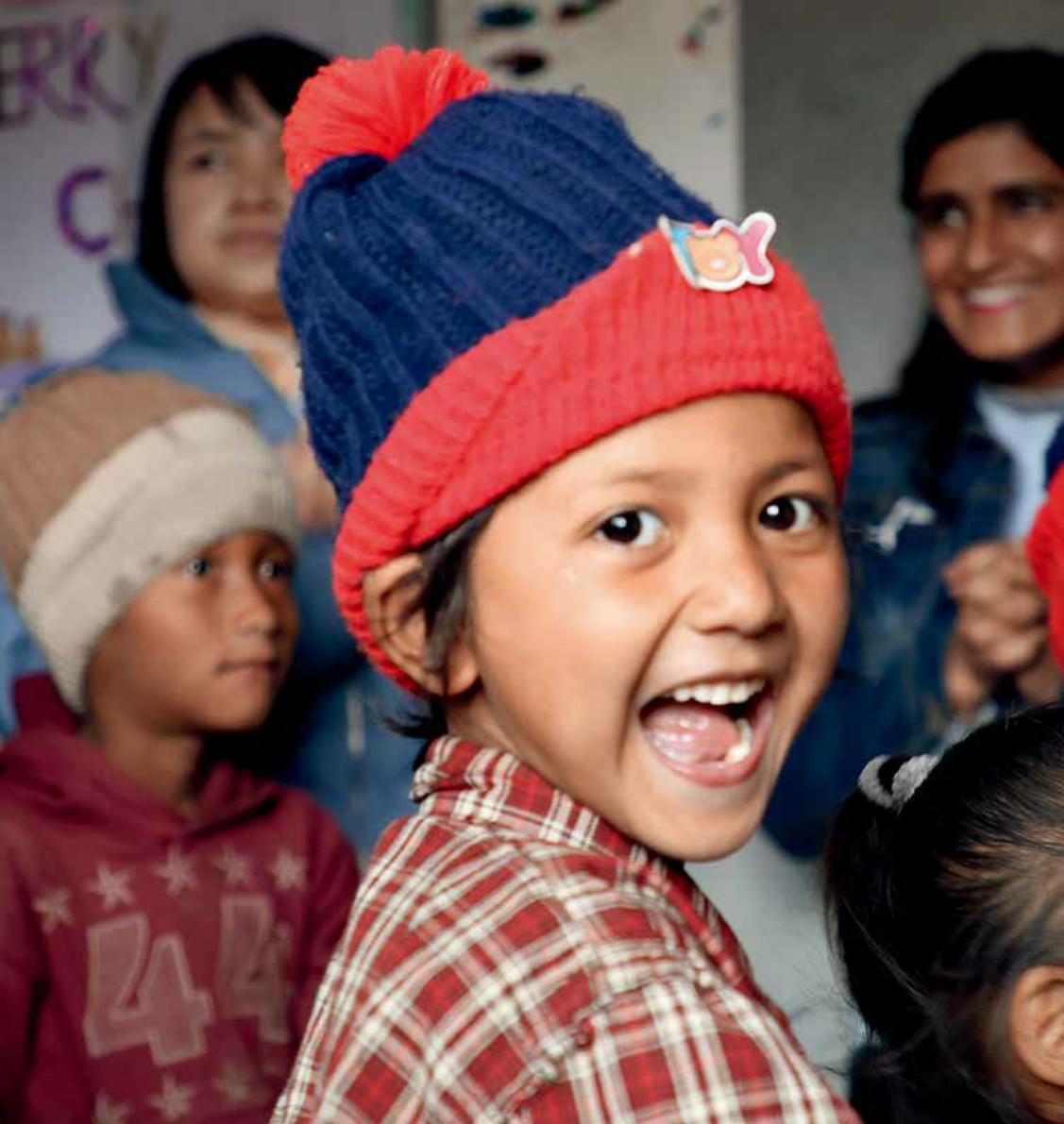Over the
2019-05-06byRuYuan
by Ru Yuan

The story of Rainbow Volunteer Club in Nepal started on April 25, 2015, when a massive 8.1-magnitude earthquake struck the country. That day, Rainbow Volunteer Club, a non-governmental organization (NGO) founded by a group of young Chinese people devoted to charitable endeavors, left for Nepal to help with rescue efforts. From humanitarian relief after the quake to helping children and bolstering education, Rainbow has now been providing services in Nepal for nearly four years.
Originally founded in 2011 in Chinas Gansu Province, Rainbow Volunteer Club was officially registered as a non-governmental and nonprofit organization in China in 2014, only a year before the massive earthquake hit Nepal.
In September 2017, Rainbows Nepal office was officially registered and established in Kathmandu and soon began to recruit local volunteers to provide long-term and full-time services. With it, Rainbow became an NGO with branches in foreign lands, which remains quite rare for an NGO from Gansu Province or anywhere else in China.
From Temporary Earthquake Relief to Long-term Service
On April 25, 2015, the massive earthquake shook Nepal. Ren Zhihao, head of Rainbow Volunteer Club, flew to Lhasa that afternoon with some colleagues, where they boarded a Chinese civil aircraft heading for Nepal to perform overseas evacuation operations. When they arrived in Kathmandu, the local airport was already closed, and Rainbow volunteers attracted a great deal of attention. Even local police officers who were maintaining order at the airport were surprised. “You guys are coming in now?”
Rainbow volunteers quickly began to assess the disaster, recruit local volunteers and assign them tasks as they established resettlement sites. Over the following two months, Rainbow worked with other institutions to build temporary shelters for earthquake victims and provide them food. Later, it began to set up temporary resettlement sites for kids from local orphanages, shifting the focus of its relief efforts to post-disaster settlement of orphans. Also because of such kids, Rainbow workers decided to stay in Nepal to provide child-centered public services.
“Childrens Home” is an orphanage that Rainbow Volunteer Club began to serve shortly after the earthquake. “This orphanage drew our attention while we were conducting post-quake assistance and research,” recalled Rainbow volunteer Chen Mi. “Its buildings were cracked due to the earthquake. The kids there had no place to live and no food to eat.” Upon seeing this scene, Rainbow workers gave one of their three tents to the orphanage and started brainstorming more “practical” help. In the following years, Rainbow volunteers have shifted from providing temporary shelters for Nepalese kids to helping them attend school and receive education, supplying basic living amenities, organizing development activities, playing with children and regularly visiting them.
Providing educational programs for kids is one of the relief missions to which Rainbow Volunteer Club attached the greatest importance in China and beyond. The organization has been drawn to child education in poverty-stricken mountainous areas because the educational resources in Nepals mountainous regions are so scarce. “We hope to help local children grow sustainably through exploring different methods,” Chen said.
Public Welfare Cooperation under Belt and Road
In September 2017, the branch of Rainbow Volunteer Club in Nepal registered with the Social Welfare Council Nepal. Thanks to policies of the Belt and Road Initiative, Rainbow Volunteer Club has been considering extending its cooperation and exchange with Nepalese NGOs under the framework of the Belt and Road Initiative. Currently, they focus on projects involving helping children in need, enhancing child development, promoting youth exchange and building community schools in Nepal to help local children and families as they promote people-to-people exchange between the two countries.
In terms of helping children in need, Rainbow Volunteer Club focuses most tightly on Nepalese orphans and local kids from poverty-stricken families. The NGO has also carried out child development programs such as “Rainbow Sense.” Aimed at young dropouts,“Rainbow Sense” provides them with basic living necessities and learning opportunities.
Rainbow volunteers have worked with local schools and teachers in Nepal to develop child-centered activities and encourage local young volunteers to participate. The organization has already helped 50 Nepalese kids return to school and hosted training programs for teachers from local schools. It provided education support services for 10 schools in Sindhupalchok District including establishing mobile theaters, providing basic materials such as rugs, conducting disaster alleviation and prevention classes in primary schools, setting up libraries and sending school supplies to kids in mountainous areas.
The youth exchange program is the pride of Rainbow Volunteer Club in terms of promoting peopleto-people exchange. Aiming to strengthen exchange and collaboration among young volunteers from both China and Nepal, young volunteers from both countries have jointly worked on the program. Through providing systematic training for Nepalese university students, Rainbow hopes to transform young Nepalese volunteers into social workers. By doing so, these Nepalese young people can land a job while providing services for public welfare undertakings.
Rainbow has even bigger goals. From December to May, people from the mountainous areas across Nepal often go to work in brick factories around Kathmandu. Earning meager incomes and living in areas with scarce educational resources, many of these migrant workers dont have the opportunity to send their kids to school during this time. “At first, our plan was to provide learning opportunities only for the children of these brick factory workers,” said Ren Zhihao.“But during the process of implementation, our ideas evolved, and now we want to provide free schooling opportunities for homeless and migrant children around Kathmandu.” Rainbow Yingxin Community School is one fruit of this idea. The school, which is expected to open by the summer of 2019, aims to raise awareness about education for both parents and kids by providing supplementary courses and skills classes for migrant children living in surrounding areas.“Nepal is a land of abundant festivals and activities,” noted Chen Mi. “One of the countrys most important non-religious festivals is Childrens Day. You can tell from their observation of the holiday that they attach great importance to kids. We hope that through the efforts of volunteers from both China and Nepal, more children will enjoy equal access to education and embrace a bigger world.”
